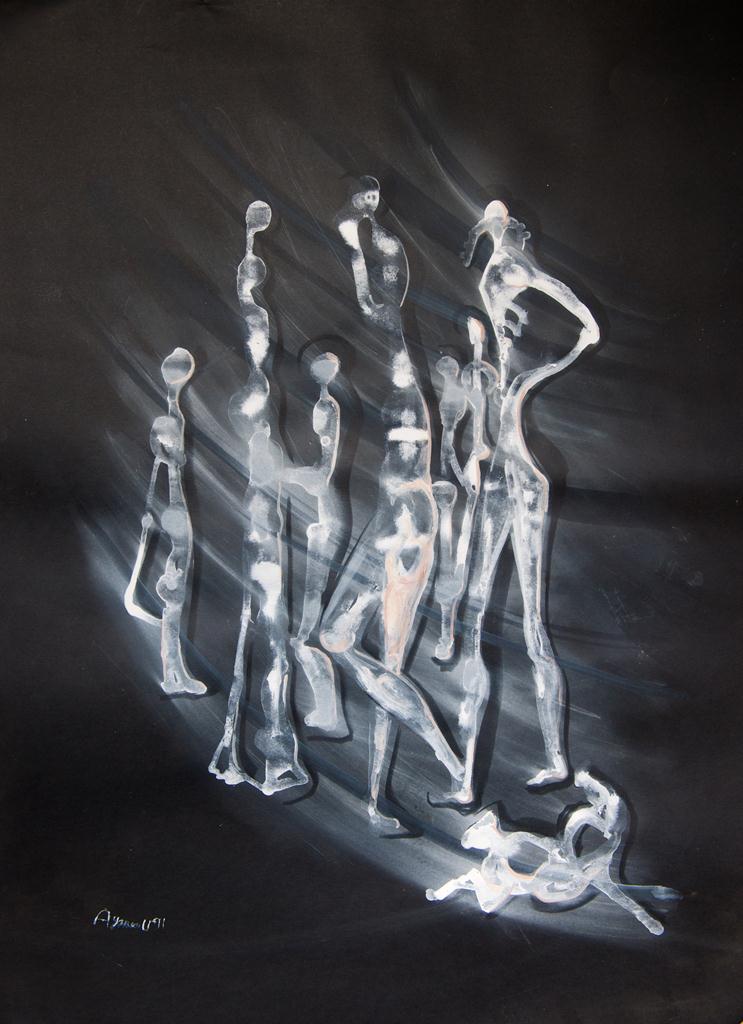Youssef Ziedan, author of award-winning multi-million bestselling novel “Azazel,” strikes again with his latest novel, “Mohal.”
Ziedan leaves the title of the novel without the Arabic short vowel marks, or tashkil, making it viable to three different interpretations and, consequently, three different translations. The first and more obvious is “Mohal," which means impossible; the second is "Mahal," meaning places; and the third is "Mehal," a Quranic term which means very strong.
Having made his name with historical fiction, Ziedan decided to break away from this and write a contemporary novel set between the mid-90s and 2002. It’s a story of a half-Egyptian/half-Sudanese young man working as a tour-guide in Aswan after moving there from Omdurman, Sudan.
The unnamed hero of the story embarks on a journey that takes him to Kalabsha, Luxor, Alexandria, Dubai, Boukhara, Tashkent, Kandahar and Guantanamo, his final destination.
It is difficult to trace the build-up of the storyline that leads him from one place to the next — it’s chance or destiny that moves him. His love story with a student from Alexandria whom he meets on a trip to Aswan propels him to travel to the coastal city; the expiry of his work permit in Egypt leads him to return to Sudan. After he loses hope in marrying his love, he moves to Dubai in search of a better-paying job. Later, he finds himself transported to Uzbekistan, and when the company runs out of business, he gets hired as a photographer with Al Jazeera news channel in Afghanistan, where he is detained in a camp and finally transported to Guantanamo.
The story contains multiple layers. The first encompasses the aforementioned chain of incidents, which doesn’t really amount to a significant plot, but rather a realistic, incoherent travelogue. The second functions as a political allegory, starting from the background of the young man’s religious upbringing, his meeting with Osama Bin Laden in Sudan, his girl’s marriage to a Libyan businessman involved in the abduction of Libyan dissident Mansour Kikhia, the terrorist attacks on the tourists in Luxor in 1997 and his detention in a US camp in Afghanistan.
The young man, however, seems to be oblivious and unaffected by all of this political upheaval. Nothing changes his religious or political beliefs; he remains simple-minded, moderately religious and politically neutral. Everything around him contains sufficient catalysts to convert him into a Jihadist, but while he never turns into one, ironically, he’s constantly treated as such.
The back-cover synopsis of the book is quite misleading, stating that the young man’s life was turned upside-down after his meeting with Bin Laden, which is completely untrue. The meeting that occurs briefly between the two is very friendly, during the time when Bin Laden was in exile in Sudan doing charity work while keeping an eye on the Jihadists in Afghanistan. As with other monumental historical events, this meeting passes without leaving any deep marks on our hero; it simply makes him wonder about the secret behind the mysterious Bin Laden and his unjustified generosity for the Sudanese people.
The synopsis also gave this impression that part of the novel takes part in Guantanamo, which is also untrue.
By the end, the informed reader will find it difficult to ignore the similarities between the protagonist’s journey and that of a real-life character. Our hero is a Sudanese photographer who worked for Al Jazeera in Afghanistan, was arrested and sent to Guantanamo for seven years in detention. In other words, it’s the same exact story of Sudanese journalist Sami Al Hajj.
Zeidan, however, shrugged off this theory, asserting that the novel is not about a specific character but simply represents the story of a contemporary Arab.
Similarities with real life aside, “Mohal” remains a novel rich with well-crafted language, a distinctive hallmark of Ziedan’s. His peerless knack for evoking places, particularly evident in the parts set in Uzbekistan, is front and center in this novel.
Ziedan once again puts himself on the bestsellers’ shelves with a novel that is equally entertaining and challenging.


